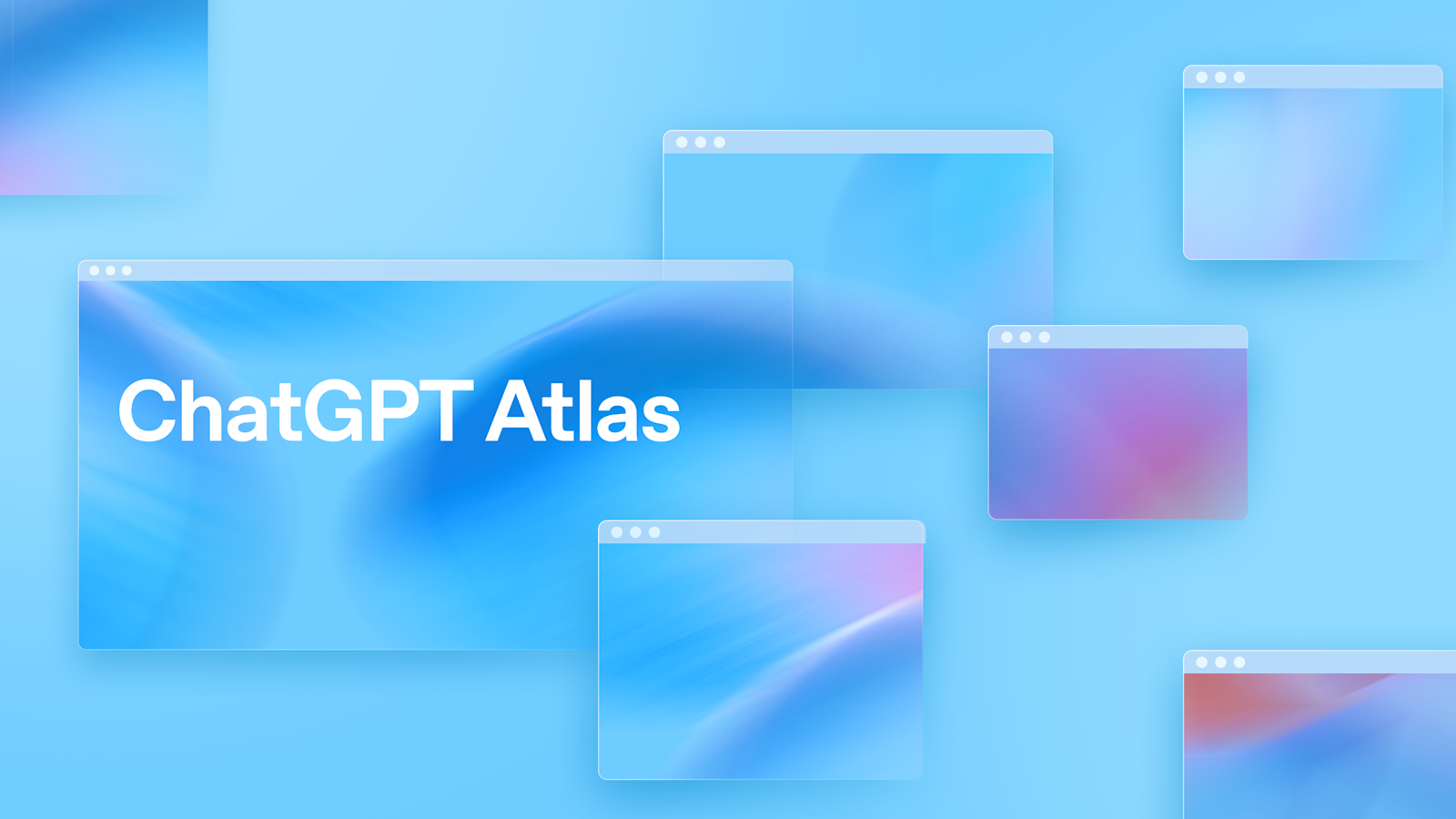- Flipped.ai Newsletter
- Posts
- Your browser just got an intern (that actually works).
Your browser just got an intern (that actually works).
Atlas brings ChatGPT to every webpage; finally, an assistant worth keeping around.
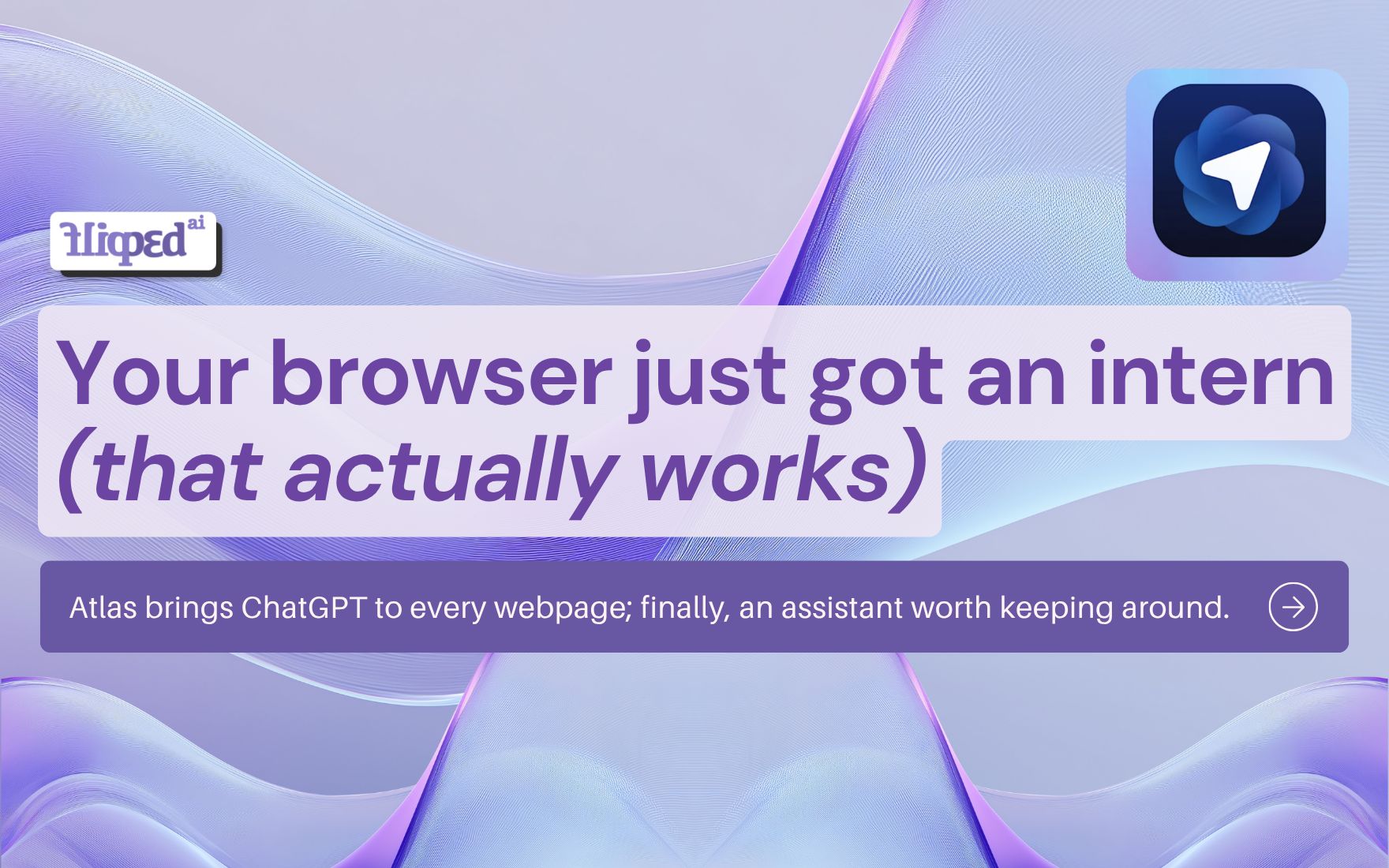

Transform your hiring with Flipped.ai – the hiring Co-Pilot that's 100X faster. Automate hiring, from job posts to candidate matches, using our Generative AI platform. Get your free Hiring Co-Pilot.
Dear Reader, 👋
What if your browser could remember everything you've researched, understand what you're trying to accomplish, and actually complete tasks for you without you lifting a finger?
Flipped.ai's weekly newsletter reaches over 75,000 professionals, innovators, and decision-makers worldwide.
This week, we're diving into OpenAI's ChatGPT Atlas, a browser that doesn't just display web pages; it works on them. With browser memories that recall your context and agent mode that takes action on your behalf, Atlas is rewriting the rules of how we interact with the internet.
The era of passive browsing is over. This tool doesn't just help you search; it researches, compiles, and executes.
Before we dive in, a quick thank you to our sponsor, Superhuman AI.
The Gold standard for AI news
AI keeps coming up at work, but you still don't get it?
That's exactly why 1M+ professionals working at Google, Meta, and OpenAI read Superhuman AI daily.
Here's what you get:
Daily AI news that matters for your career - Filtered from 1000s of sources so you know what affects your industry.
Step-by-step tutorials you can use immediately - Real prompts and workflows that solve actual business problems.
New AI tools tested and reviewed - We try everything to deliver tools that drive real results.
All in just 3 minutes a day
The browser war just got its first AI-native weapon: ChatGPT Atlas.
The big shift: From research to understanding
Here's what's fundamentally different about Atlas.
Traditional browsers make you come to them. You type, you search, and you click. It's transactional. Atlas flips this model entirely; it comes to you. It watches, learns, and acts on your behalf.
A college student testing Atlas put it perfectly: "I used to switch between slides and ChatGPT, taking screenshots just to ask a question. Now ChatGPT instantly understands what I'm looking at."
That's not convenience. That's a paradigm shift.
Feature 1: Browser memories: Context that travels with you
Most browsers have history. Atlas has memory. And there's a massive difference.
Browser history tells you what you visited. Browser memories understand why you visited it and what matters to you.
Ask Atlas: "Find all the job postings I was looking at last week and create a summary of industry trends so I can prepare for interviews."
It doesn't just pull up links. It synthesizes insights. It connects dots across days of browsing. It becomes your second brain for the web.
The control mechanism is sophisticated:
Memories are completely optional and private to your account.
Toggle visibility per site using the address bar.
Archive outdated memories without deleting them.
Clear browsing history to wipe associated memories instantly.
Incognito mode keeps ChatGPT logged out entirely.
You're not surrendering control; you're gaining leverage.
Feature 2: Agent mode: The web assistant that actually does work
This is where Atlas moves from impressive to transformative.
Agent mode lets ChatGPT take actions in your browser. Not suggestions. Not instructions. Actual execution.
Real-world example: You're hosting a dinner party. Give Atlas a recipe. It opens tabs, finds grocery stores near you, adds ingredients to a cart, and completes the order—while you answer emails.
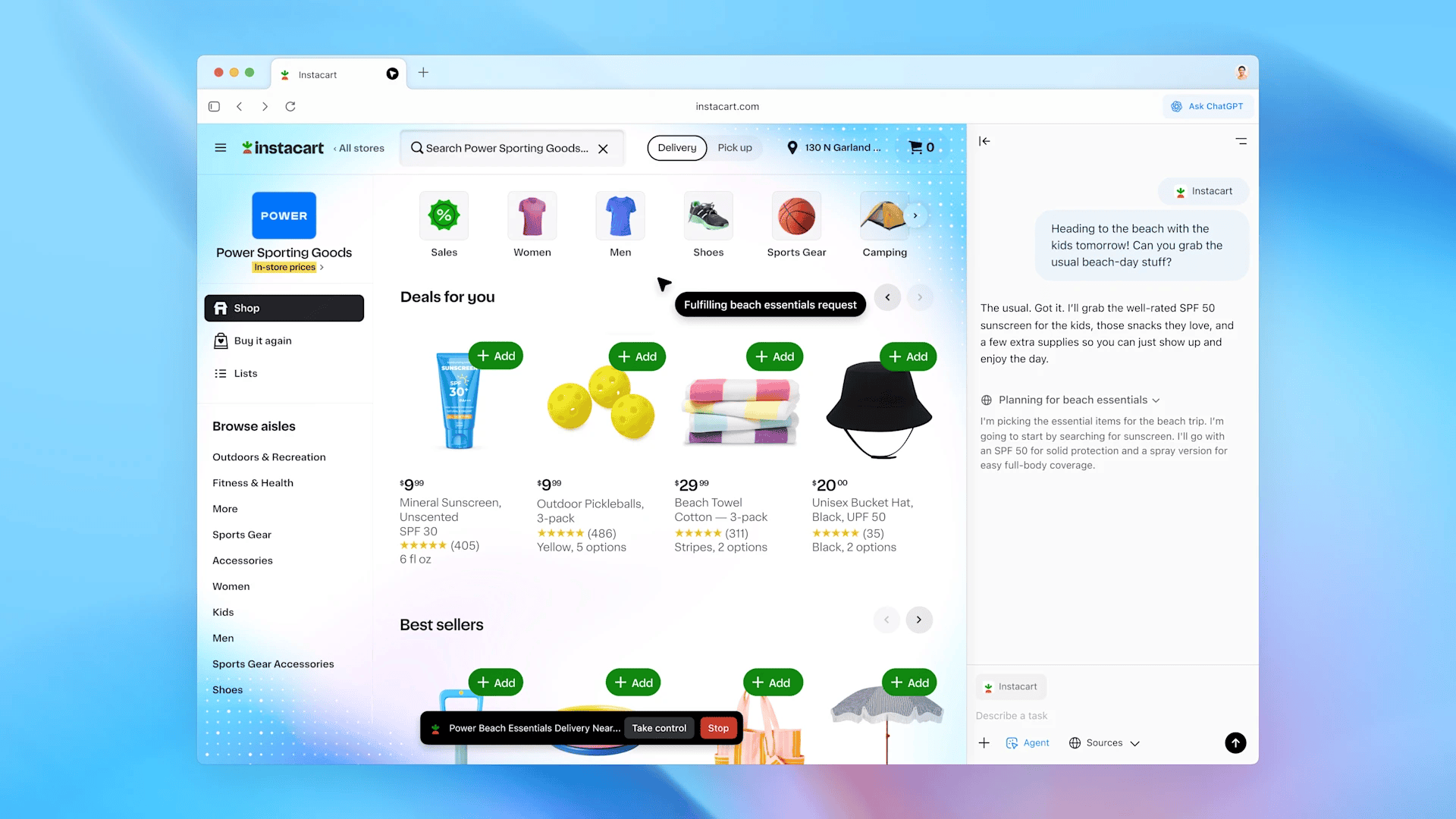
Work scenario: Need competitive intel for a team brief? Atlas can navigate to past documents, perform new research across multiple sites, and compile everything into a structured report. All autonomously.
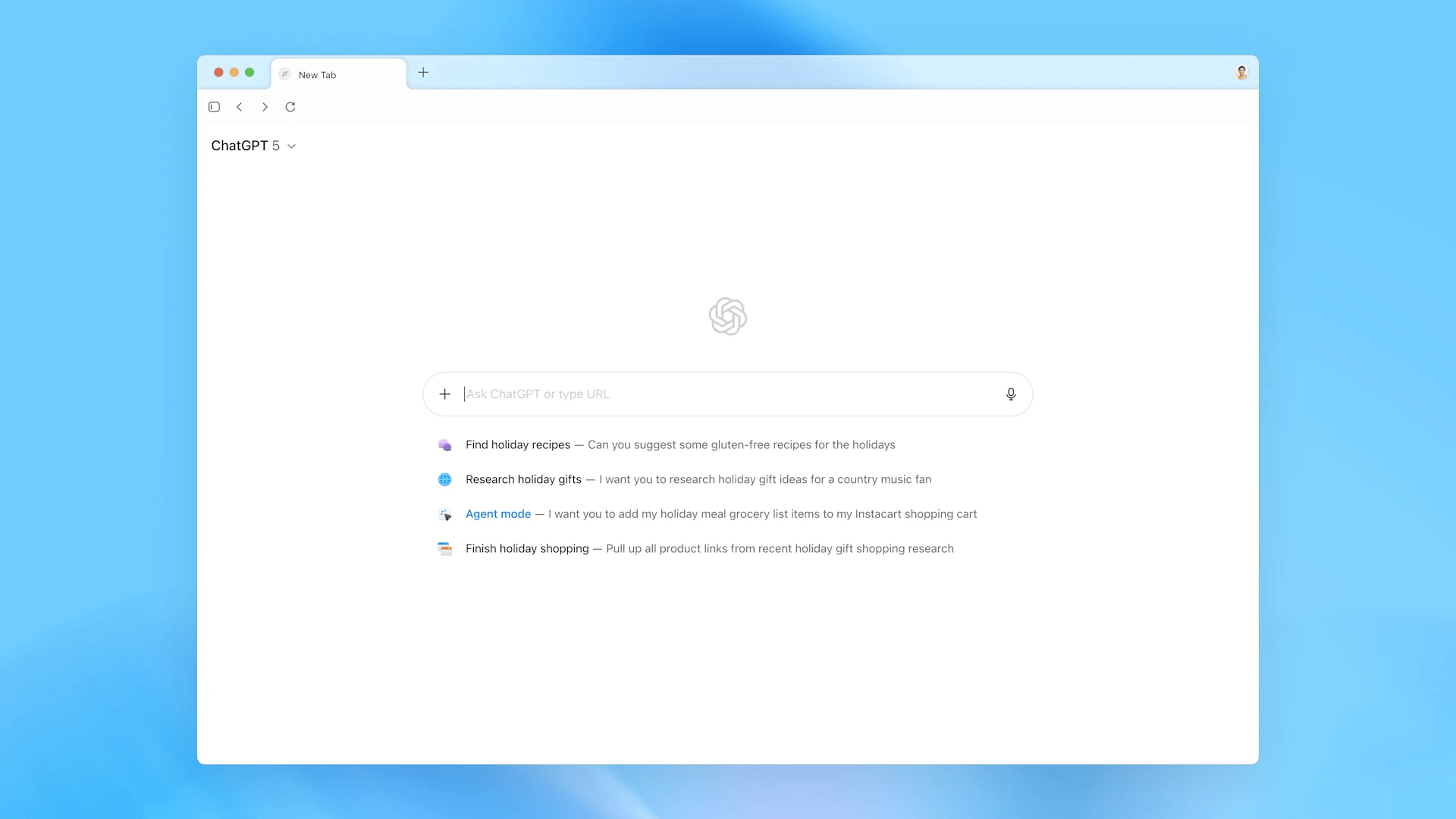
This is available today for Plus, Pro, and Business users in preview. OpenAI is transparent that it's an early experience; complex workflows might trip it up, but they're iterating rapidly on reliability and speed.
The technical intelligence behind it
What makes agent mode possible is Atlas's deep integration with browsing context. It's not just reading pages; it's understanding your workflow, anticipating next steps, and operating within your established patterns.
The system knows when to pause. It recognizes sensitive sites like financial institutions and waits for your approval before acting. It can't run code, download files, or access your file system; these guardrails are architectural, not optional.
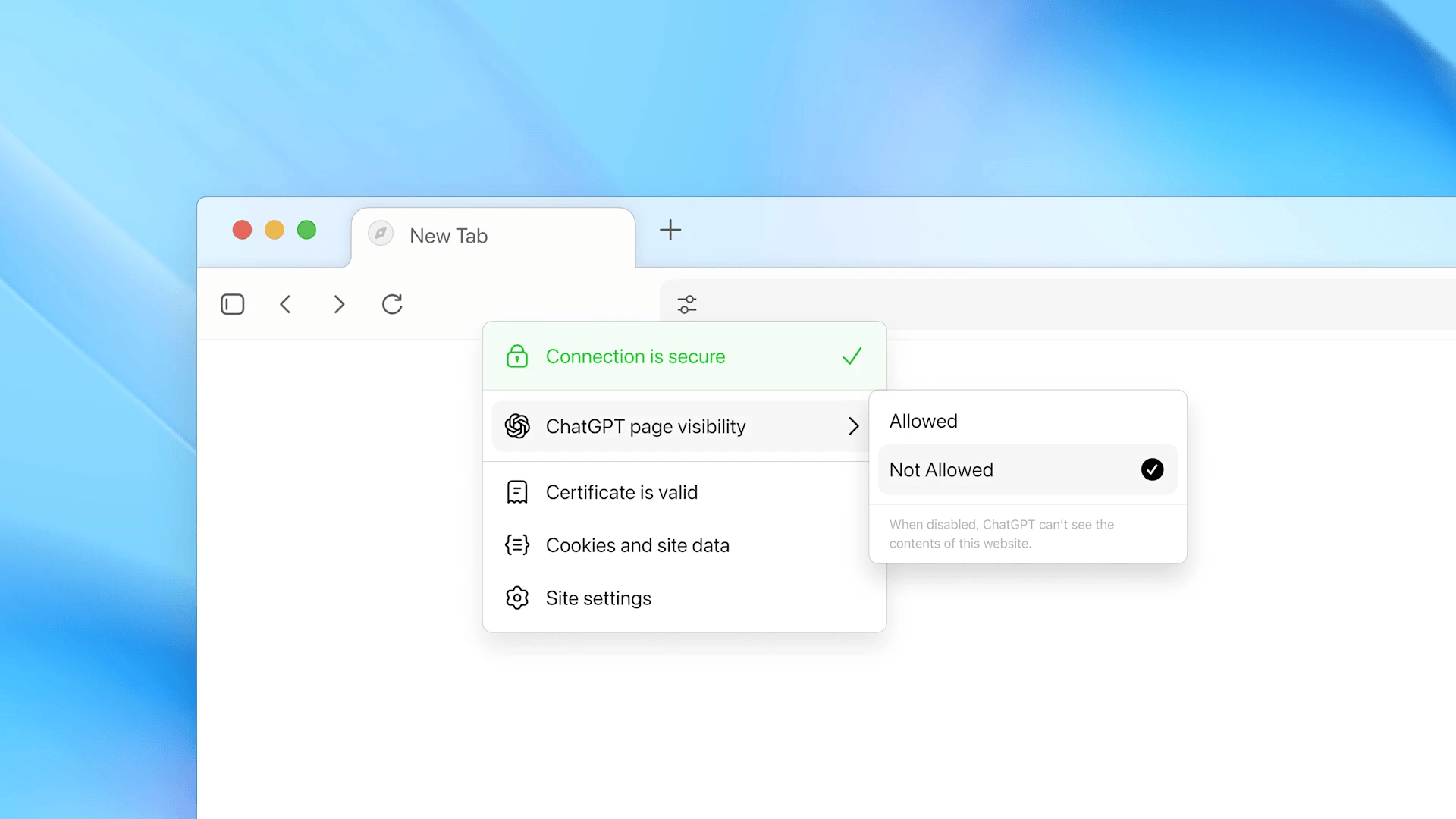
But here's the honest truth: Agent systems carry inherent risks. They can be susceptible to hidden malicious instructions embedded in webpages or emails. OpenAI has run thousands of hours of red-teaming and built adaptive safeguards, but no defense is perfect.
Their recommendation? Use agent mode in logged-out mode for sensitive work, monitor its activities, and stay informed about what information you share. Transparency about risk is refreshing in an industry that often oversells capability.
Privacy architecture: Built on user control
Let's address the elephant in the room: An AI watching everything you browse sounds dystopian.
Atlas handles this thoughtfully:
Default stance: Your browsing content is NOT used to train AI models. Period.
If you opt in: You can enable "include web browsing" in data controls. Even then, websites that opt out of GPTBot won't be trained on. Your consent matters, but so does website owners' consent.
Parental controls work natively: Settings you've established for ChatGPT carry over to Atlas. New controls let parents disable browser memories and agent mode entirely.
Incognito mode is really incognito: When visibility is off, ChatGPT can't view page content and creates zero memories from it.
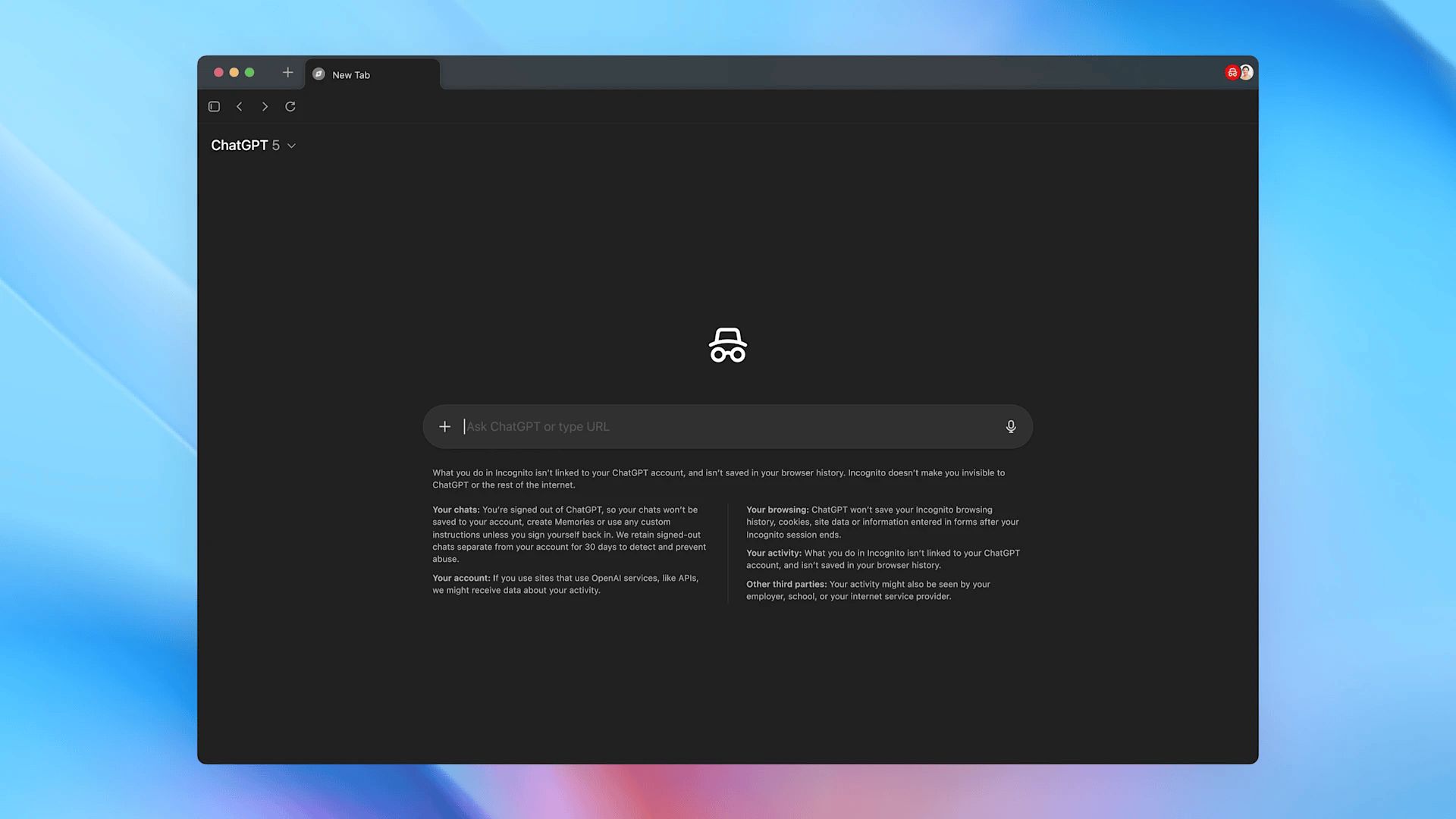
This isn't security theater. This is thoughtful product design that respects the complexity of privacy in an AI-powered world.
Why this launch changes everything
We're witnessing the beginning of agentic web systems, a future where you delegate the mundane and focus on what demands your uniquely human judgment.
Atlas isn't just making browsing easier. It's redefining what browsing is. The web stops being a place you visit and becomes a place that works for you.
Think about the implications:
Research that compiles itself across sessions
Administrative tasks that complete themselves while you sleep
Context that never gets lost in tab chaos
A browsing experience that actually learns how you work
This is what happens when AI isn't bolted onto existing infrastructure; it's the foundation.
Here's what you need to know.
Availability: Launching worldwide on macOS today for free for Plus, Pro, and Go users. Business gets beta access. Enterprise and Edu users can access it if admins enable it.
Coming soon: Windows, iOS, and Android versions
Getting started: Download at chatgpt.com/atlas. Sign in and import bookmarks, passwords, and history from your current browser. You're live in minutes.
What's next in the roadmap: Multi-profile support, enhanced developer tools, and better app discoverability for Apps SDK developers. Website owners can add ARIA tags to optimize how agent mode works on their sites.
The real question: Are we ready?
Atlas represents something bigger than a product launch. It's a test of whether we're ready for truly agentic AI, systems that don't just answer questions but take action on our behalf.
The technology is here. The question is whether we'll trust it, how we'll govern it, and what we'll do with the time it gives back.
One thing's certain: the way we use the web just fundamentally changed.
Want to get your product in front of 75,000+ professionals, entrepreneurs, decision-makers, and investors around the world? 🚀
If you are interested in sponsoring, contact us at [email protected].
Thank you for being part of our community, and we look forward to continuing this journey of growth and innovation together!
Best regards,
Flipped.ai Editorial Team


